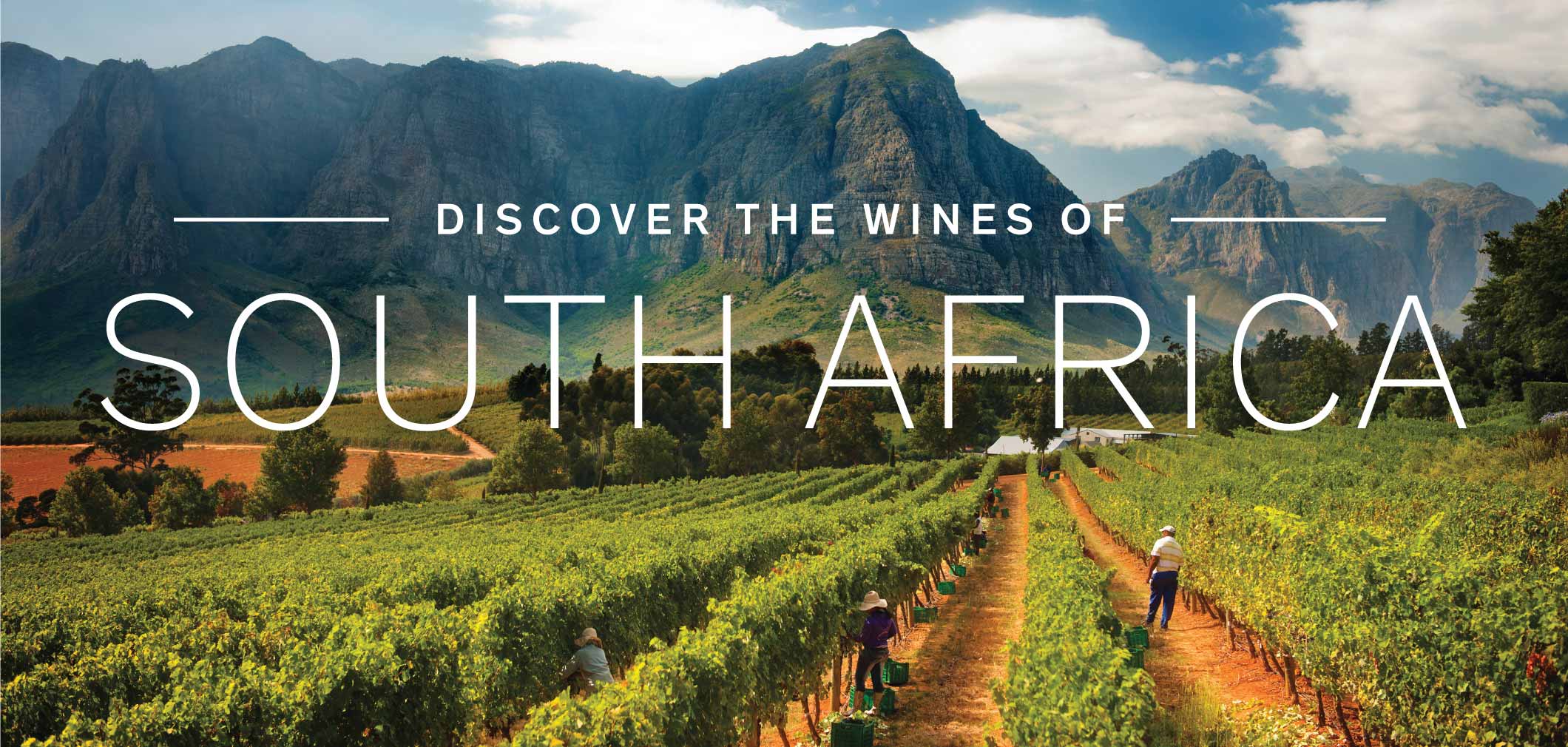
This Winemaking Pioneer Is a Leader in Sustainability
With a 350-year winemaking tradition, South Africa blends high-quality production with eco-friendly practices, making it one of the most exciting and earth-friendly wine regions around.
They've been making wine in South Africa ever since the first traders from the Dutch East India Company set up a supply station on the Cape more than 350 years ago. The country’s dry and sunny Mediterranean climate, cooled by the confluence of the Atlantic and Indian oceans, is ideal for growing a wide range of grapes, and the dramatic geography allows it to produce myriad styles. Today, South African wines are recognized for offering excellent quality at affordable prices – and sustainability.
Wines to Try
Regions to Know
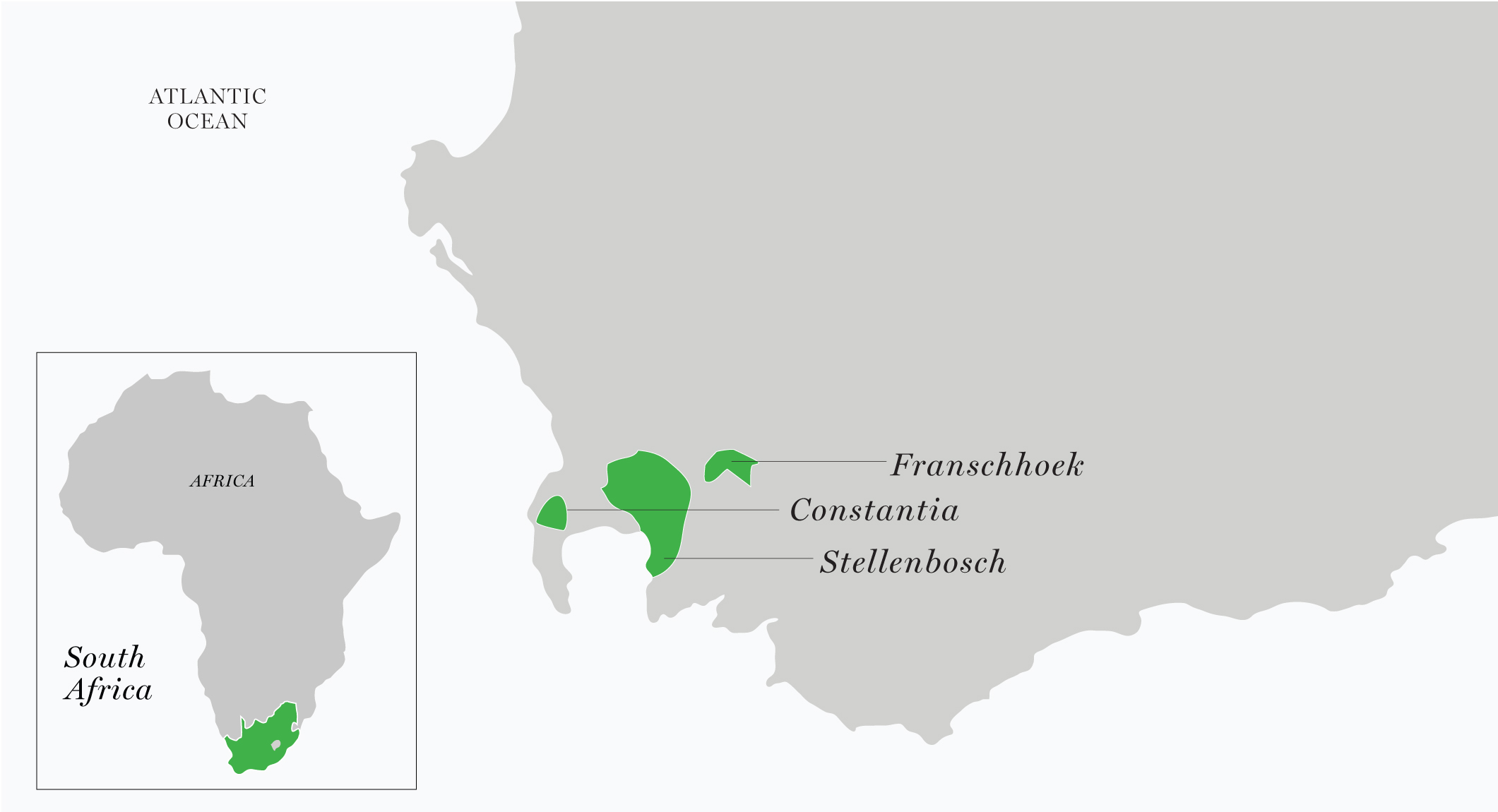

Constantia
The birthplace of the South African wine industry. In the 18th and 19th centuries, the region’s sweet Vin de Constance, an unfortified dessert wine made from Muscat Blanc, was one of the most revered wines in the world. These days, Constantia is renowned for the quality of its Sauvignon Blanc, much of which grows on the gentle slopes of Constantiaberg Mountain to take advantage of the cool sea breezes. The area is also making waves with its modern take on red Bordeaux blends, and some producers are even reviving the sweet-style Muscat Blanc dessert wines that first made the region famous.

Stellenbosch
South Africa’s most famous wine region, and the country’s second-oldest town, is just 50km southeast of the capital of Cape Town. The lush valley, home to more than 200 wine producers, is surrounded by the Drakenstein and Stellenbosch mountains. Nearby, False Bay tempers the Mediterranean climate, creating almost ideal wine-growing conditions. Red wines, Cabernet Sauvignon and Shiraz in particular, are primarily grown in the granite-based soils farther west, while white wines, Chenin Blanc and Sauvignon Blanc especially, thrive in the sandstone soils of the east.

Franschhoek
The fertile Franschhoek Wine Valley is among South Africa’s most popular tourist destinations, not just for its exceptional wine, but also for its charming Cape Dutch architecture and abundance of high-end hotels and excellent restaurants. French Huguenot refugees first settled the valley in the late 17th century and recognized almost immediately that the region’s abundant rainfall and forgiving climate would make it perfect for growing grapes. Smaller than nearby Stellenbosch, the area is home to some of the country’s most renowned wineries, producing excellent Sauvignon Blanc, Chardonnay, Semillon and Chenin Blanc, as well as Cabernet Sauvignon, Shiraz, Pinot Noir and Merlot.
Fast Facts
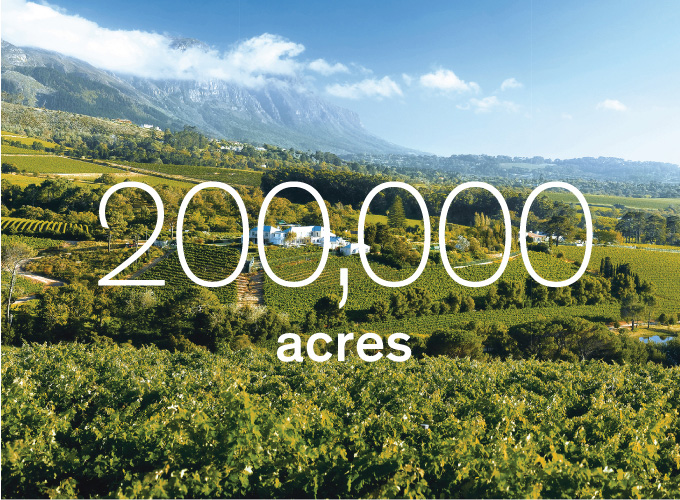
More than 200,000 acres of grapes are planted in South Africa, making it one of the top 10 wine producers in the world.
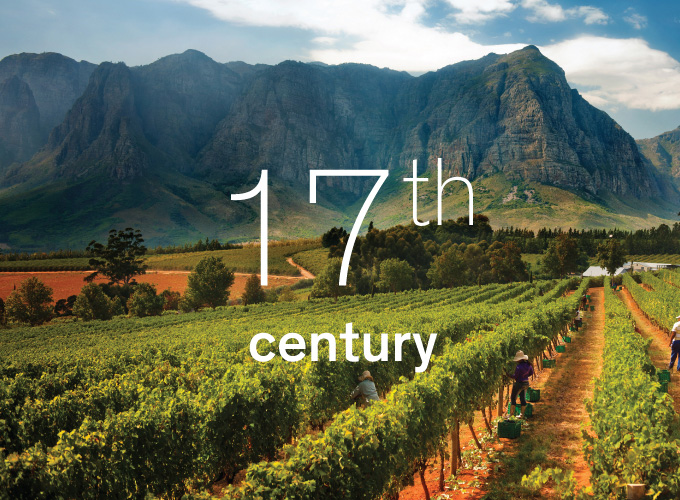
Grapes were first planted here in the mid-17th century.
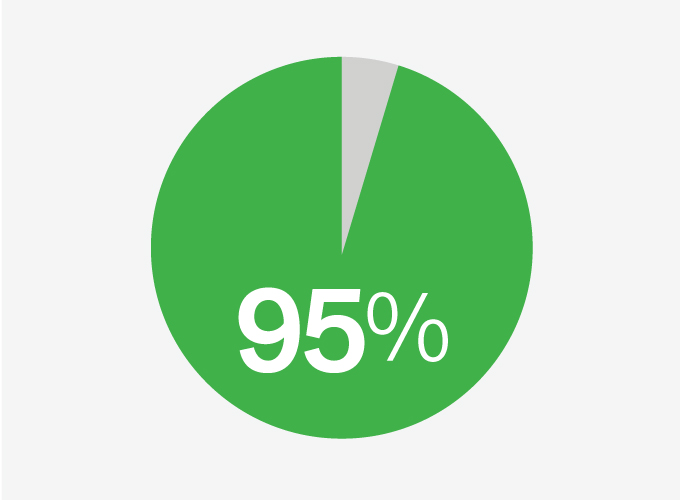
Nearly all of the South African wine industry (95 per cent) follows sustainable wine-growing and winemaking principles.
Check Out The Seal On Your Bottle

Introduced in South Africa in 2010, the Integrity & Sustainability Certified seal is a guarantee that a wine is made according to principles of social and environmental sustainability. These include:
• using minimal chemicals
• respecting biodiversity
• fostering healthy and safe work environments
• introducing natural predators onto farms
• cleaning up waste water
Enter the identification numbers from the seal on your bottle at this website for details about the wine's integrity and sustainability certification.
Great Reds

Syrah
South Africa is considered the first country outside of France to plant Syrah, and the grape is now grown widely across the Western Cape.
You’ll Experience: Luscious and full-bodied with elements of blackberry and black pepper, violet and oak.
Try It With: Lamb chops with Romesco or Moroccan vegetable terrine.

Cabernet Sauvignon
South African winemakers are known for creating lush, vibrant and extremely well-balanced examples of this classic grape.
You’ll Experience: Ripe cherry, blackberry, vanilla and cedar aromas underpinned by herbaceous notes and complex minerality.
Try It With: Sausage lasagna, charred bison ribeye with horseradish cream or garlic and balsamic roasted mushrooms.

Pinotage
South Africa’s signature red ⎯ the grape was developed here, after all ⎯ Pinotage has legions of fans the world over.
You’ll Experience: A lighter side of the red spectrum with heady roasted herb and smoky elements, and cherry cola, banana and blackberry flavours.
Try It With: Braised spareribs in a mustard seed curry or Cajun-spiced shrimp.
Wonderful White Wines

Chardonnay
South African Chardonnay straddles the line between France’s complex and ornate interpretation of the grape and California’s exuberant tropical style.
You’ll Experience: Rich citrus flavours and aromas with exotic spices carried along by a rich body.
Try It With: Dungeness crab salad with Green Goddess dressing or smoked salmon with soba noodles.

Sauvignon Blanc
South Africa is now the fourth-largest producer of Sauvignon Blanc in the world.
You’ll Experience: Clean, fresh and herbaceous with stone fruit (peach, apricot, nectarine) aromas and a balance between grassiness and tropical fruit flavours.
Try It With: Grilled asparagus with lemon and Parmesan, whole roasted fish or spaghetti alle vongole.

Chenin Blanc
South Africa’s most widely planted grape was once used primarily for local brandy production, but today stands on its own as a fresh, bright and elegant white wine.
You’ll Experience: A medium-bodied wine with apple, citrus and sharp melon flavours.
Try It With: A maple syrup and mustard glazed ham or roast pheasant with bread sauce.